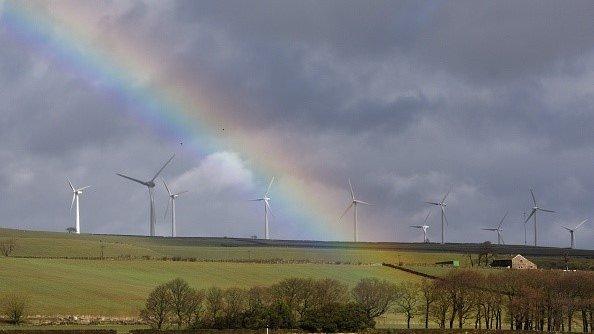Smart energy revolution 'could help to avoid UK blackouts'
- Published

A "smart energy" revolution could help ensure that the UK does not suffer blackouts, according to National Grid's new UK chief.
Nicola Shaw, its executive director, said technological advances will reduce the need to build new conventional power stations in the UK.
An "internet of energy" will allow fridges, washers and dishwashers to help balance energy demand.
Some commentators say the UK needs more gas-fired power to prevent blackouts.
Ms Shaw agreed that more investment in gas-fired power was needed, but argued that between 30% and 50% of fluctuations on the electricity grid could be smoothed by households and businesses adjusting their demand at peak times.
"We are at a moment of real change in the energy industry. From an historic perspective we created energy in big generating organisations that sent power to houses and their businesses. Now we are producing energy in those places - mostly with solar power," she told BBC News.
London-listed National Grid runs electricity and gas networks in the UK and the northeastern United States.
More and more people and companies were adjusting their energy consumption to use more when power was at its cheapest, Ms Shaw said.
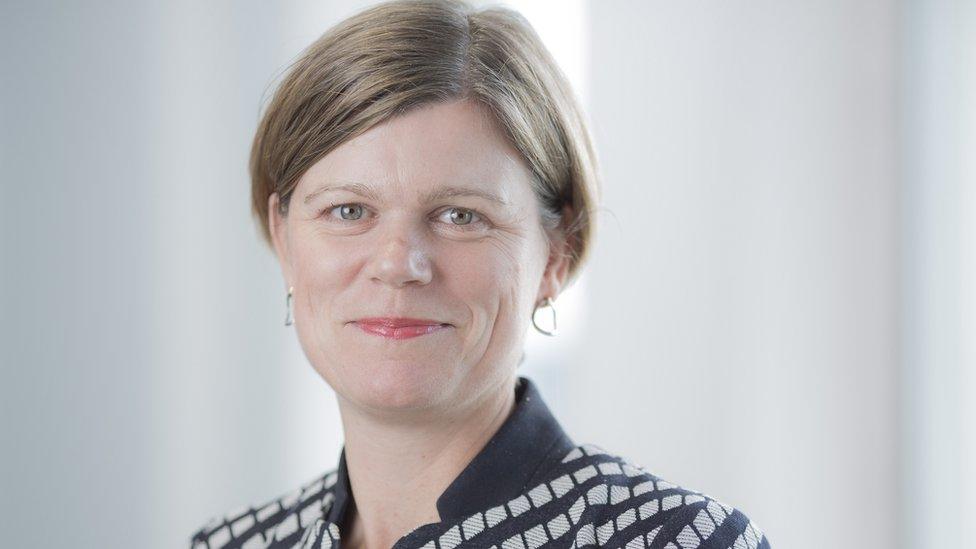
National Grid UK executive director Nicola Shaw
"All of that is a real revolution … a smart energy revolution that's changing the way we think about energy across the country," she said.
This change was being driven by people and firms generating energy, storing it and using it flexibly through new controls and online software.
The move toward flexible energy use is supported by the National Infrastructure Commission. And the advances in energy software are described by the World Energy Council as the biggest change in 21st Century energy - along with solar power.
Price signals to consumers will be key to the change, as the UK relies on increasing amounts of intermittent renewable energy.
Already some firms benefit from using extra power when it is cheaper off-peak. That trend is spreading to households: a firm in Cornwall is offering a "sunshine tariff" that aims to persuade households to use cheap solar power when the sun is out, for example.
Energy experts say that in future consumers will be able to ask for their appliances to be connected online to the grid.
Peak hour
A signal could then turn on, say, a washing machine, when there was plentiful energy from wind power, or turn off a freezer for a few minutes to smooth out a spike in demand at teatime.
Prof Phil Taylor, professor of energy systems at Newcastle University, said: "People are used to the idea that they pay more for using the trains at peak time, or they queue more if they use the roads at rush hour.
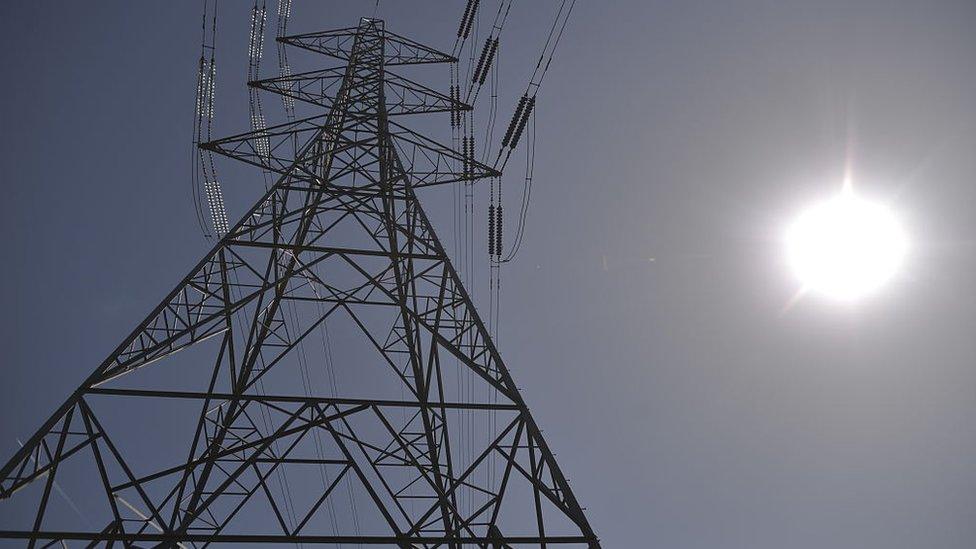
"Technology has enabled us to bring this price flexibility to energy consumers. No-one will be forced to link their home to the energy internet, but if they do choose to use it, it will save them money, save pollution and save power stations needing to be built."
The challenge for National Grid is to attract more companies to adopt what is known as "demand-side response", or DSR. Some firms are nervous, others have not heard of it - and business models are changing at breakneck speed.

Turn me on (and off)
Marriott Hotels has a contract that temporarily turns off its water-chilled air conditioning system at times of peak demand. The water temperature drops so slightly that guests do not notice the difference.
Japanese electronics giant Sharp is devising controls and software to allow solar storage batteries in homes to sell energy back to the grid when the demand (and price) are high. The firm says it expects the system to pay its way without subsidy by 2018.
Aggregate Industries - which makes road materials - is helping to smooth spikes in the grid even though it generates no power at all. The bitumen in giant containers stored near Heathrow airport can be stored at temperatures of between 130 and 185C. If a rise in demand is predicted for later in the day, the company is advised by a computer to heat the bitumen to the maximum temperature, then turn off the power until the demand - and price - subsides. Aggregate is also rewarded for gobbling up extra energy when there is a glut of wind power on the grid. Head of sustainibility, Donna Hunt, said: "I think this is a no-brainer for us because we're saving energy. We're not generating carbon whilst the power is off, and we're making an income for allowing our assets to be used flexibly."

Ms Shaw acknowledged that some were anxious about the lights going out as the smart energy revolution progressed.
However, she said: "I don't think people should fret. There's an awareness of the issues. There's lots of activity on the market that will solve this problem. Be enthusiastic - it's a moment of change that should take us to a better place."
In response, the GMB union called National Grid "naively complacent". Justin Bowden, its national secretary, said: "Avoiding winter blackouts with a 'smart energy' revolution is fanciful nonsense. The smart grid is years away.
"What's needed to guarantee the lights stay on over the coming winters are new power stations and the go-ahead for Hinkley Point C."
But the CBI's head of infrastructure, Michelle Hubert, said: "Over the next decade, the UK's energy system will see a profound shift towards a more flexible and dynamic system. Consumers - both businesses and households - will become much more engaged in how they use, manage, and even produce energy.
"This will play an important role in supporting the UK's transition to a diverse energy mix, helping to meet our goals of affordable, low-carbon and secure energy across the country."
Wiring up
The big questions are how far smart technology can ease the burden on the grid and how quickly it can make its mark.
Deepa Venkateswaran, from Bernstein energy analysts, said: "The smart grid revolution is going to be exciting. However, there's a time frame - we need some time to get wired up and respond dynamically, but in the short term we need new gas stations to replace some of our ageing coal stations which are going to close."
Ms Shaw agrees with the need for new gas power, but is wary of committing to new power stations while technology is producing unexpected improvements at a sharp pace.
The issue is central to the UK's laws on cutting greenhouse gases. Under Ms Venkateswaran's scenario, the UK will be locked into generating gas-fired electricity until well into the 2030s. This would wreck the government's target of ending gas-fired generation in the early years of that decade.
Ministers are working on a long-term climate strategy, which was promised for last November but is now not expected until sometime before the end of this year.
The pressure is on the new Department for Business, Energy and Industrial Strategy to devise policies that will both keep the lights on and bills affordable - as well as carbon emissions down.
Follow Roger on Twitter: @rharrabin, external
- Published1 July 2016

- Published1 July 2016
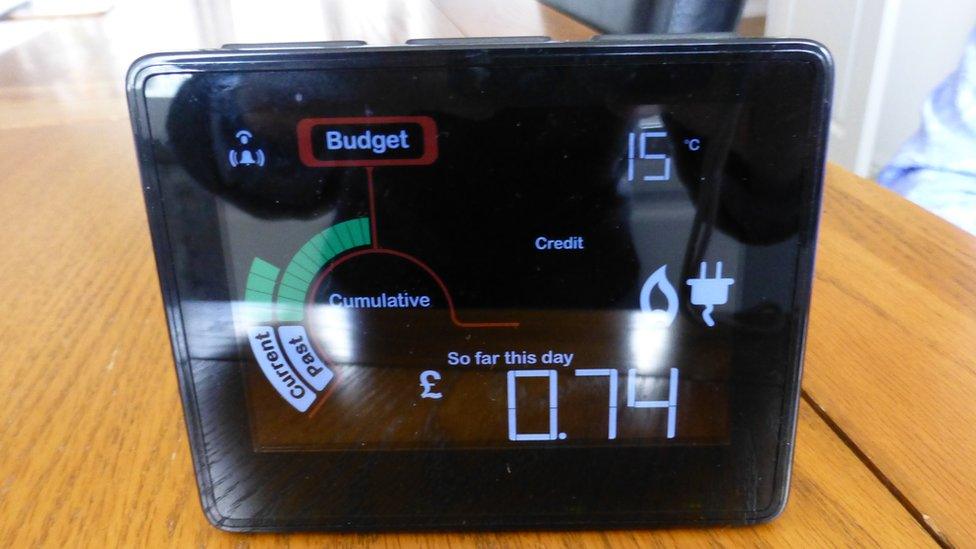
- Published4 March 2016
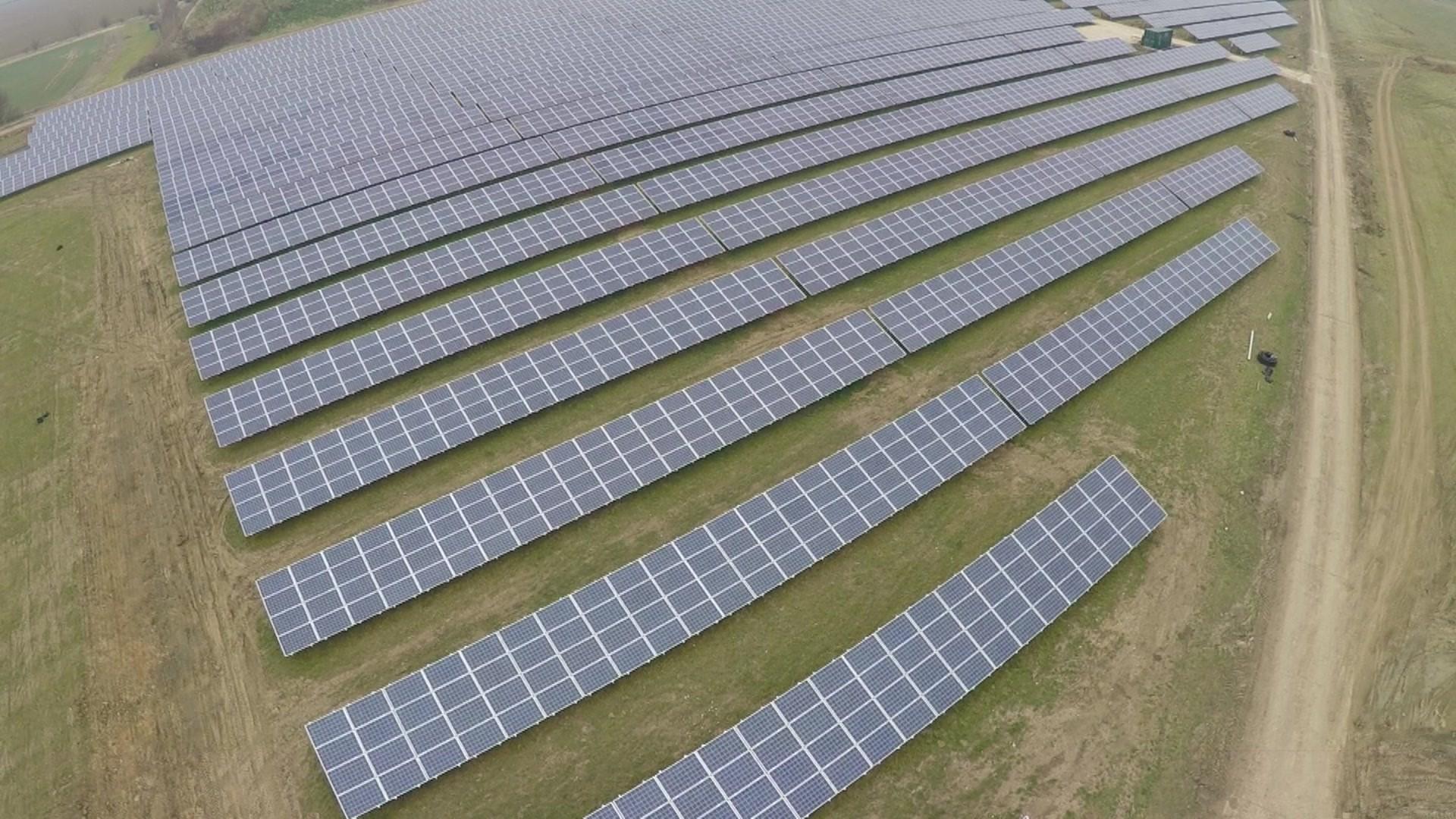
- Published3 March 2016
